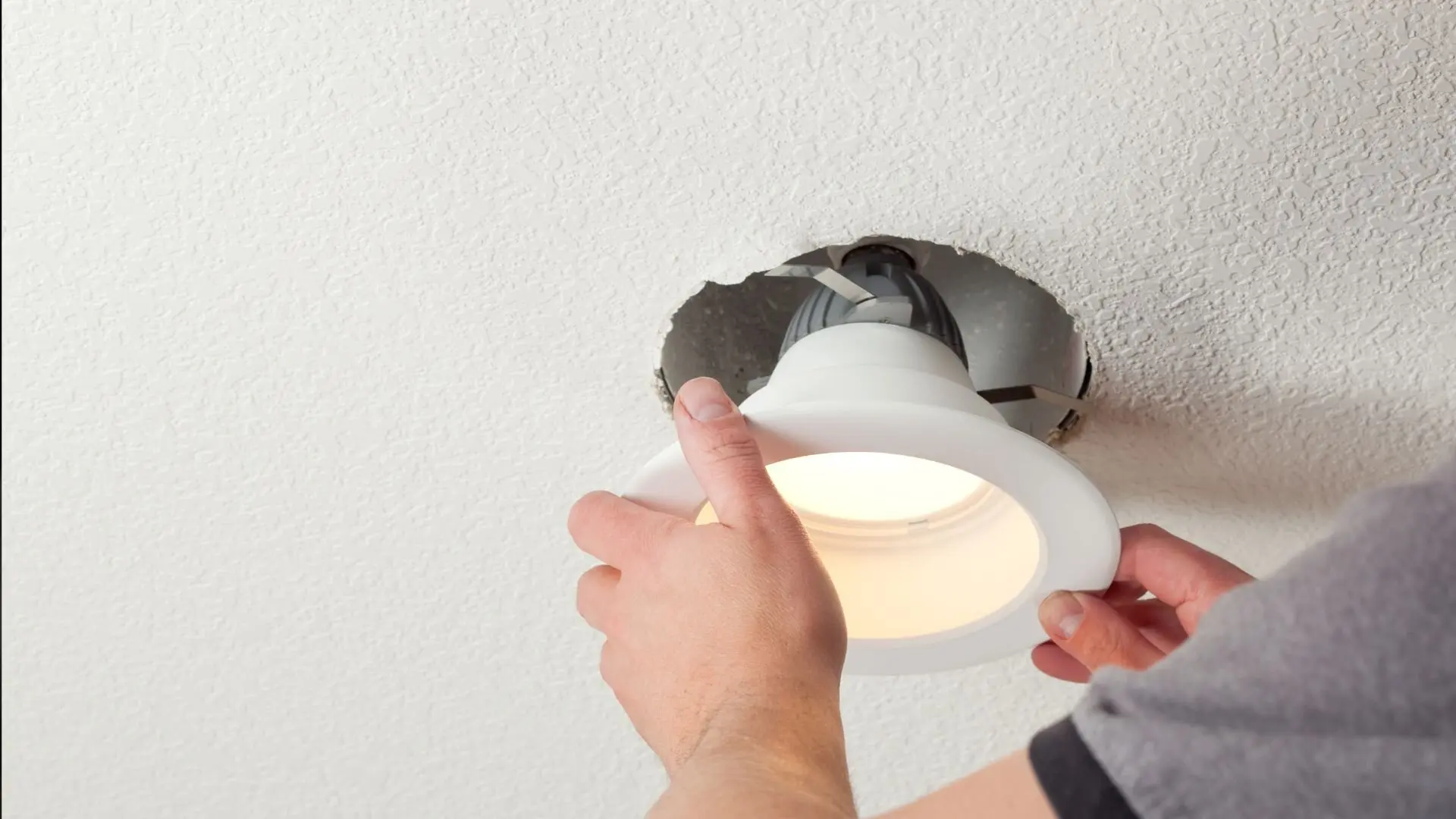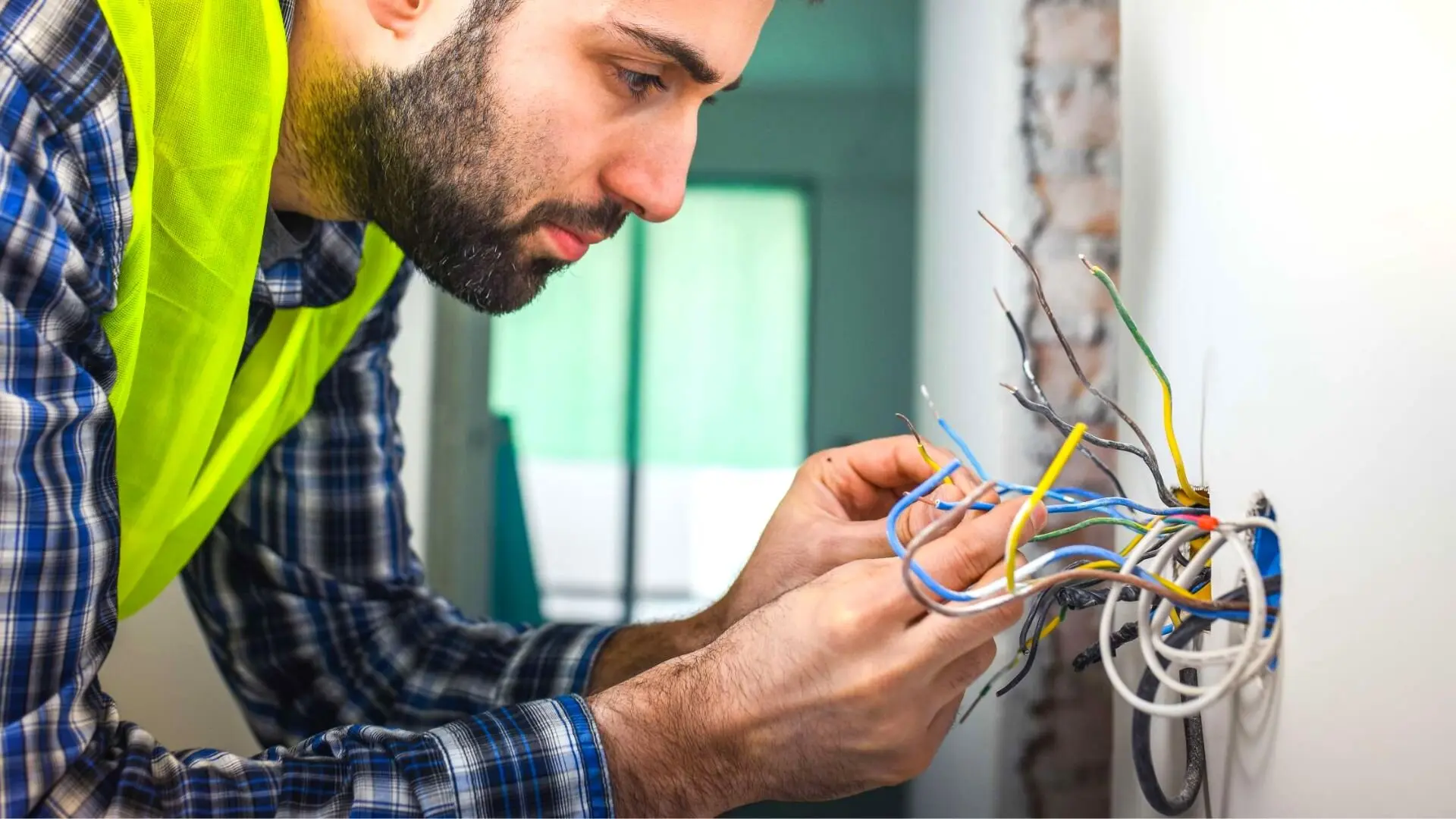
Get your free Melbourne Electrician quote today!
Our team of Melbourne Electricians is here to help you with any questions or concerns you may have. We’re committed to providing you with the best possible service and support.
Draining electricity bills hurting your business profits? Discover how to outsmart high energy costs with expert advice from commercial electricians. This guide reveals practical tips to save money on lighting, equipment, and other electrical systems.
Did you know that lighting and electrical appliances account for over half of a commercial building’s energy consumption in Australia? Maintaining a functional and efficient electrical system for businesses isn’t just about keeping the lights on – it’s about keeping costs down. This is where reputable commercial electricians come in.
In this article, we’ll uncover how teaming up with a licensed electrical contractor can be financially beneficial for your commercial space over time. We’ll delve into the significance of preventative maintenance and spotting electrical issues early on. With the expert guidance of commercial electricians, you’ll explore ways to optimise your lighting and integrate motion sensors, making savvy electrical choices that curb energy use and ward off expensive repairs.
Understanding Your Electrical System
Keeping your commercial building’s electrical system in top shape is crucial. Regular electrical audits by a licensed electrician can identify potential problems before they become costly repairs. These audits, conducted by experienced electrical contractors, involve inspecting electrical panels, wiring, and equipment to ensure everything functions safely and efficiently.
A well-maintained electrical system is an investment in your business’s success. Faulty wiring, overloaded circuits, and outdated equipment can all lead to inefficiencies that drive up energy consumption and costs.
A reputable electrical contractor can also identify opportunities to improve your building’s energy efficiency. Upgrading to energy-efficient lighting and installing motion sensors can make a big difference.
Plenty of electrical contractors provide preventative maintenance plans that include regular inspections along with services like panel cleaning and equipment testing. This forward-thinking approach can help you save money over time, primarily by averting expensive repairs and unwelcome downtime.
Hiring a qualified electrician for any electrical job, big or small, is essential. A good electrician’s commitment to quality work ensures your electrical system is safe, reliable, and efficient. This protects your equipment and building and plays a pivotal role in staff safety.
Energy-Efficient Lighting Solutions for Homes and Businesses
Lighting plays a big role in energy expenses, but luckily, there are several ways to brighten your space without breaking the bank.
LED Lighting
Consider switching to LED lights. They last longer, use up to 80% less energy, and come in various colours and brightness levels. A reputable electrician can advise you on the best-LED options for your needs and complete the electrical work efficiently.

Smart Lighting Systems and Controls
Take control of smart lighting systems. These allow you to adjust brightness and even schedule lights to turn on/off automatically. Occupancy sensors in hallways and bathrooms can further reduce energy use. Upgrading your electrical panel might be necessary for innovative systems – a qualified electrician can assess your existing setup.
Natural Light Utilisation Strategies
Don’t underestimate the power of natural light! Maximise sunlight by keeping windows clear and strategically placing furniture. Skylights can also be an excellent option for some spaces.
ROI of Upgrading
Upfront costs for new lighting systems or LED bulbs might seem high, but the long-term savings are substantial. Factor in the reduced need for regular maintenance of traditional bulbs and consider the financial assistance programs some energy providers offer. Reduced energy consumption is beneficial to the environment, too!
HVAC System Optimisation
Maintaining your HVAC system isn’t just about comfort; it’s about efficiency and saving money on energy bills. Regular professional maintenance by a qualified electrician can identify minor issues before they snowball into expensive repairs. Think of it like car maintenance – fixing a small leak is cheaper than replacing the whole engine.
Smart thermostats and zoning systems give you precise temperature control across different sections of your building. This tailored approach can slash costs compared to uniform temperature settings throughout.
Energy recovery ventilators (ERVs) capture heat or coolant from outgoing air and transfer it to incoming fresh air. This reduces the workload on your HVAC system, leading to lower energy consumption and money savings.
Proper insulation in your walls, roof, and ducts is crucial to HVAC efficiency. Upgrading insulation is an investment that pays off in the long run.
Power Factor Correction
Improving your business’s energy efficiency doesn’t have to be a complex project. Power factor correction, a process managed by a qualified electrician, can significantly reduce your electricity bill.
The power factor is the ratio of usable energy (kW) to the total delivered by the grid (kVA). A low power factor indicates wasted energy, often due to inductive loads in motors and lighting. This inefficiency can lead to higher bills with penalties for exceeding peak demand.
A good electrician can optimise your system by installing power factor correction equipment, like capacitor banks. This reduces the reactive power demanded, lowering your kVA and potentially saving you money on your electricity bill.
While power factor correction requires a professional electrician upfront, it can pay for itself quickly. Studies show businesses can experience significant cost reductions, making it a worthwhile electrical project for commercial buildings.
Smartening Up Your Building: Efficiency and Savings
Today’s commercial buildings are embracing automation with Smart Building Management Systems (SBMS). These advanced systems do more than basic thermostats, providing a centralised hub to manage and monitor everything, from lighting to HVAC systems.
Energy is a key focus. SBMS provides real-time data on energy usage, allowing for adjustments and identification of areas for improvement. This data-driven approach can lead to significant cost savings on electricity bills. Additionally, SBMS integrates seamlessly with Internet of Things (IoT) devices like smart sensors, further optimising building operations.

But what about the power itself? Voltage optimisation technology tackles this challenge. It’s like having an experienced electrician constantly monitoring and adjusting the incoming voltage to ensure your building receives precisely what it needs. This reduces energy consumption, minimises wear and tear on equipment, and extends its lifespan.
The benefits are clear. Voltage optimisation is ideal for commercial buildings with fluctuating power demands. The potential energy savings and return on investment (ROI) are substantial, often recouping the initial cost within a few years.
Plus, it can streamline electrical jobs. By reducing unexpected costs from overvoltage-related equipment failures, you can minimise the need for emergency call-outs to a commercial electrician. This frees up experienced electricians for planned maintenance and larger projects, potentially allowing you to combine jobs and avoid the often higher hourly rate associated with urgent repairs due to faulty workmanship. In short, a smarter building is a more efficient, cost-effective building.
Powering Your Savings: The WP Electrical Advantage
By sticking to these tips shared by seasoned commercial electricians, you’ll keep your electrical system humming along smoothly, all while trimming repair costs and cutting down on energy bills. Keep in mind, dabbling in DIY electrical work can be risky and might just end up costing you much more in the long run.
Here at WP Electrical, our certified professionals have the expertise and experience to handle all your commercial electrical needs. We offer upfront quotes, prioritise efficiency, and use high-quality materials to ensure long-lasting results. Contact WP Electrical today for a free consultation, and let us help you create a safe and cost-effective electrical solution for your business.
Published by: Pascal Harb17 October 2025